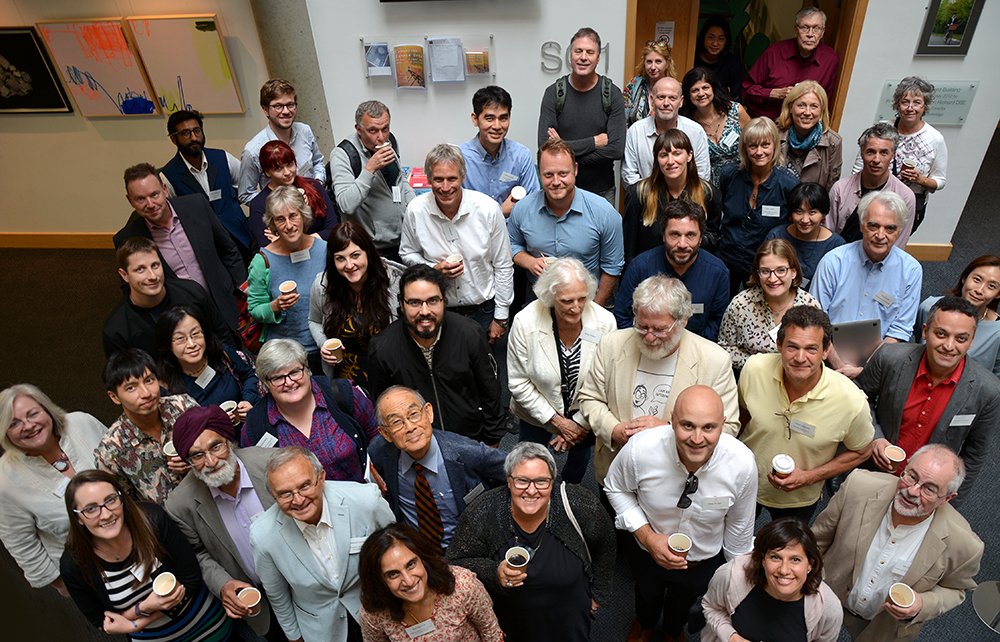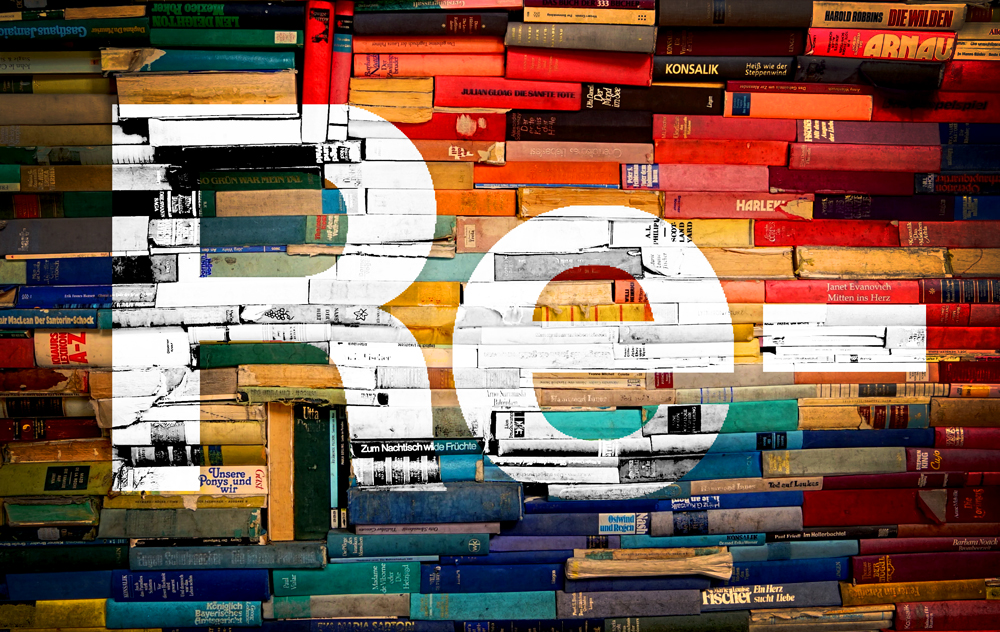| 26 Jun 2019 - 28 Jun 2019 | 9:00am | Seminar Room SG1, Alison Richard Building, 7 West Road, CB3 9DT and Faculty of Music on 28 June, 11 West Road | |
- Description
- Programme
Description
Online registation has now closed.
This is a three day conference in two venues (with two different registrations):
- 26 and 27 June: Conference Room SG1, CRASSH, Alison Richard Building, 7 West Road, Cambridge.
- 28 June: Recital Room, Faculty of Music, 11 West Road, Cambridge.
Blog
Why Thinking about Tacit is key in a Digital Age by Satinder Gill
Convenor
Satinder Gill (Centre for Music and Science)
Tacit Engagement:Beyond Interaction, 2015, Springer.

Day 1: Tacit Engagement in the Digital Age (Photo E Lamb)
A joint conference by the 'Re-' Interdisciplinary Network (CRASSH) and the AI & Society Journal
A concept that has been at the fore of discussions around the sociology of scientific knowledge, the limits of AI, and most recently the design of ‘collective intelligence’, is ‘tacit knowledge’. First coming to prominence in the 1960’s, with Polanyi’s The Tacit Dimension (1966), it is a concept that continues to be addressed by scholars and practitioners from a wide range of disciplinary and inter-disciplinary perspectives, and applied fields of practice. This conference explores the place of the tacit in the 21st Century, where our lives are increasingly augmented by AI algorithms.
Engagement with and through social media networks and mobile apps are re-shaping the notion of community and family, and affecting wellbeing, as well as the cultures of the workplace and institutions. The exponential rise of big data flows in networked communications causes vast gaps in translation, confusion about what is true and false, and mistrust of ‘experts’. In the shadows of machine thinking we are unable to engage with difference.
This challenges us to come up with technological futures rooted in us as persons, not as numbers, parts, sensory mechanisms, genes, and individual bodies.
- What alternative models might allow humans to better engage with technology?
- How can we reconsider the relation between a person and a collective intelligence?
- How can we reconceive the self as interaction in a digital age?
Ideas of performance and reperformance help us reposition seemingly singular subjects and objects as collective phenomena, and help reconnect art and science after their separation in the 19th Century; but the arts in general can play a key role in questioning and reframing our understandings by directing attention to the tacit assumptions, norms, and expectations embedded in all cultural processes.
There is a supposed neutrality around technology, evidenced in the idea that human ‘intelligence’ can, in the absence of ‘person’, be artificially re-presented, re-constructed and re-produced through computation (AI). The conference explores in what ways the interplay of the arts and sciences is reconceiving augmentation, and questions what an ‘intelligence’ that is ‘artificial’ might be.
CRASSH and the Faculty of Music are delighted to facilitate the Hungarian division of the Polanyi Society in promoting Polanyian perspectives in a special workshop, which will be offered as a parallel event to the main conference on the afternoon of 28th June. On this third day at the Faculty of Music we will discuss the intersections of art, science, technology, and society, and there will be a special workshop by the Polanyi Society presenting papers covering a range of his work.
A joint conference by the 'Re-' Interdisciplinary Network at CRASSH and the AI & Society Journal.
For administrative assistant: networks@crassh.cam.ac.uk
Unfortunately, we are unable to arrange or book accommodation for participants but these are some useful websites:
Visit Cambridge
Cambridge rooms
University of Cambridge accommodation webpage
meet-cambridge




Programme
| Day 1 - Wednesday 26 June 2019 (Venue: CRASSH) | |
| 9.30-10.00 | Registration |
| 10.00-10.20 | Welcome and Introduction Satinder Gill (Music, AI&Society, Re-Network, University of Cambridge) |
| 10.20-11.15 | Keynote Chair: Ghislaine Boddington (Body>Data>Space, Women Shift Digital, University of Greenwich, London) Geoff Mulgan (CEO, National Endowment for Science, Technology and the Arts) 'How Can Collective Intelligence Orchestrate Tacit Knowledge of Different Kinds?' |
| 11.15-11.30 | Tea/Coffee Break |
| 11.30-13.00 | Roundtable Chair: Bill Thompson (BBC R&R) Tony D Sampson (University of East London) 'The Subjectless Shared Experiences of Lookalike Audiences' Simone Shu-Yeng Chung, Mary Ann Ng (National University of Singapore) 'Engagements Across a Multiplicity of Millennial Identities' Francesco Garibaldo (Claudio Sabattini Foundation), Emilio Rebecchi (Bologna University) 'If I Cannot Move Heaven, I Will Raise Hell' Jane Turner (Turning Worlds Dance Company, London) 'Phase Transitions: Self Organising Systems in Performative Dance' Clare Foster (Founder, Re-Network, University of Cambridge) 'Behavioural Science on Digital Public Space' |
| 13.00-14.00 | Lunch Break |
| 14.00-15.30 | Roundtable Chair: Satinder Gill (Centre for Music and Science, University of Cambridge) David Good (Psychology, University of Cambridge) 'The Life Between us: Variations in the Medium of Exchange and Their Impact on the Formation of Self' Hatice Gunnes (Computer Science, University of Cambridge) 'Affect and Personality in Humans and Robots' Ian Cross (Faculty of Music, University of Cambridge) 'Music and the Human Communicative Toolkit' |
| 15.30-15.45 | Tea/Coffee Break |
| 15.45-17.15 | Roundtable Chair: Ian Cross (Faculty of Music, University of Cambridge) Kriszta Sajber (Philosophy, Misericordia University USA) 'The Expressivity of Virtual Selves' Rebekah Wilson (Independent Researcher, Interactive Media Design, Amsterdam) 'Strengthening the Networked Music Performance Experience with Machine-Learning' Walter Gulick (Philosophy, Montana State University, Billings, USA) 'Personal Meanings Versus Robotic Behaviours' Jin Hyun Kim (Music, Humboldt University of Berlin, Germany) 'Our Self and World Enhanced by Music’s Mediating Relations' |
| 17.15-17.20 | Refresh break |
| 17.20-18.00 | Performance Talk/ Interactive Event Ghislaine Boddington (Body>Data>Space, Women Shift Digital, University of Greenwich, London) 'Internet of Bodies: Exploring the Future Human and Collective Engagement Scenarios' |
| 18.00 - 18.45 | Reception (Sponsored by AI & Society Journal) |
| Day 2 - Thursday 27 June (Venue: CRASSH) | |
| 9.00 - 10.30 | Roundtable Chair: Victoria Vesna (Art|Sci UCLA, USA) Dietrich Brandt (RWTH Aachen, Germany) 'Enlightenment: The Past, the Present, and Our Futures' Kathleen Richardson (De Montford University, Leicester ) 'Property Relations: From Companion Robots and AI to Sex Robots' Stephen Cave (Centre for the Future of Intelligence/CFI, University of Cambridge) 'Intelligence as Ideology: Its History and Future' |
| 10.30-10.45 | Tea/Coffee Break |
| 10.45-12.15 | Roundtable Chair: Carl Rasmussen (Engineering, Machine Learning, University of Cambridge) Jan Soffner (Zeppelin Universität) 'The Premises of the Singularity Hypothesis' Simon Taylor (University of New South Wales, Australia) 'Dementia as a Collective Informant' Melvin Chen, Chew Lock Yue (Nanyan Technological University, Singapore) 'Intelligence and the Elements of Causal Reasoning' Edward Burnell (MIT, USA) 'Hybrid Intelligence: Forming Boundary Objects Between Practitioners' Knowledges and the Mathematics of Computation' |
| 12.15 - 12.20 | Refresh break |
| 12.20 - 12.45 | Interactive Event/Workshop Maida Withers (Concoran School of Art and Design, USA) 'Mindfluctuations' |
| 12.45 - 13.45 | Lunch Break |
| 13.45 - 15.15 | Roundtable Chair: Louise Amoore (Ethics and Algorithms, Durham University) Mihály Hèder (Philosophy, Budapest, Hungary) 'Towards the Epistemic Transparency of Algorithms' Charles W Lowney (Hollins University, USA) 'How the Body Solves Problems: Martial Arts, Tacit Knowing and AI' Vit Stritecky, Petr Spelda, Filip Vostal (Charles University Prague, Czech Republic) 'Temporality and Machine Learning' Sonia de Jager (Music&Society, Erasmus University, Netherlands) 'Building Boundless, Reasonable Machines' |
| 15.15 - 15.30 | Tea/Coffee Break |
| 15.30 - 16.50 | Keynotes Chair: David Good (University of Cambridge) Louise Amoore (Durham University) 'Algorithms and the Unattributable' Caroline Nevejan (Amsterdam University) 'Urban Trust' |
| 16.50 - 17.00 | Refresh Break |
| 17.00 - 18.30 | Roundtable Chair: David Smith (University of South Wales) Andreas Schellewald (Edinburgh University) 'The Poetics of Platforms: On Audio-Visual and Algorithmic Containment' Alessio Chierico (Kunstuniversitat Linz, Austria) 'The Vacuous Identity in the Digital Realm' Marielle Pelissero (Performing Arts, Paris-Nanterre University, France) 'Digital Media, Social Networks, and LIve Performance. Aesthetic Sociality and/as New Art Practice' Cat Watts (University of Cambridge) 'Griefers and Gatekeepers: Re-Evaluating Realtime Gaming in the 21st Century' |
| 19.00 - | Conference Dinner (for Speakers ) |
| Day 3 - Friday 28 June (Venue: Recital Room, Faculty of Music) | |
| 8.30 - 9.00 | Registraton |
| 9.00 - 10.20 | Keynotes Chair: Marleen Wynants (Scruitiniser) Victoria Vesna (Art|Sci UCLA, USA) 'We Are Alien Stardust, We Are Viral Genes: Macro Micro Interactions' Vibeke Sorensen (Nanyang Technological University, Singapore) 'Art, Technology, and the Internet of Living Things (IoLT)' |
| 10.20 - 10.35 | Tea/Coffee Break |
| 10.35 - 11.30 | Interactive Event(s)/Workshop(s) Kwan Q Li (Oxford University) 'Weedlist' Rachel Stroud and Margaret Faultlesss (Orchestra of the Age of Enlightenment, Music, Cambridge University) 'Performing the Orchestra' |
| 11.30 - 13.00 | Roundtable Chair: Caroline Nevejan (University of South Wales) Tania Fraga (University of Brasilia, Brazil) 'Epicurus' Garden: Poetic and Aesthetic Considerations of an Installation and Performances with Brain-Computer Interface' Jonathan Impett (Music, Orpheus Institute, Belgium) 'Music, Thought and Intuitive Technology' Marleen Wynants (Scrutiniser) 'SWAMPLAB' Marcelo Velasco et al. (Fundacion Arte + Ciencia, Chile) 'Machine Leaning and Social Good – a Chilean Experience' Pam Burnard, Pallawi Sinha et al. ( Education, University of Cambridge) 'Re(Con)Figuring Arts and Mathematics Using Diffraction as a New Materialist Methodology for Understanding Enactments of Interdisciplinarity' |
| 13.00 - 14.30 | Lunch, Poster Presentations, Installations |
| 13.30 - 17.00 | Parallel Workshop – Polanyi Society (Lecture Rm 1) |
| 14.30-15.20 | Keynote 'Intelligence Is Social. That's Why Deep Learning Is so Good, but It's Still Not There'
Chair: Richard Staley (History and Philosophy of Science, Unversity of Cambridge) |
| 15.20 - 15.35 | Tea break |
| 15.35 - 17.05 | Roundtable Chair: Clare Foster (Univeristy of Cambridge) Veronique Chance (Fine Art and Print Making, Anglia Ruskin University) 'Record, Relay, Represent: Experiencing Running as Mediated Performance' Massimo Negrotti (Sociology, Urbino, Italy) 'The Reality of the Artificial. From a Dream to a Paradox' David Harris Smith (McMaster University, Canada) 'Cultural Robotics' Bill Thompson (BBC R&D) 'Towards Online Engagement: Rethinking the Network to Support Human Connections' |
| 17.05-17.45 | Closing Panel Discussion and Q&A |
| 17.45 - 18.30 | Reception (Sponsored by AI & Society Journal) |

